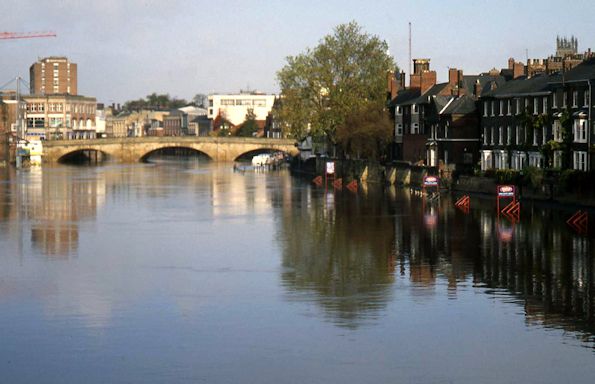The University has contributed to a major new study suggesting a link between climate change and the timing of floods across Europe.
Dr Neil Macdonald, a Reader in the University’s Department of Geography and Planning and the Institute for Risk and Uncertainty, was part of a team of 30 researchers who suggest that climate change has led to a shift in the timing of floods in some regions of Europe over the past 50 years.
The study, published in the journal Science, analysed river flow datasets from over 4,000 river flow monitoring stations in 38 countries to find different patterns of change (some shifts towards later floods, and some earlier) across the continent.
This is the first time a link with climate change has been shown at a large, continental scale using observations alone, as opposed to using computer simulation models.
The researchers suggest that floods in north-east Europe, Sweden, Finland and the Baltic states occur a month earlier than in the 1960s and 1970s, due to earlier snow melt associated with human-induced climate warming over this time period. In parts of the Mediterranean coast, flood events take place later in the season and this aligns with observed warming of the Mediterranean.
In the UK and Ireland and neighbouring parts of north-west Europe, a more complex picture emerged. Floods occur two weeks later in parts of northern Britain, western Ireland, coastal Scandinavia and northern Germany than they did 20 years ago. Researchers believe later winter storms may be linked to a modified air pressure gradient between the equator and the pole, which may also reflect climate warming, although natural variability in this pattern is also an important factor over this time period.
The study sheds light on the complexity of flood processes, as other parts of Britain (including southern England) and the Atlantic coasts of Western Europe now see ‘winter’ floods now typically occurring earlier towards the autumn, which may reflect the role of soil moisture, as maximum soil moisture levels are reached earlier in the year in more recent periods.
Dr Macdonald, who recently authored pioneering work on historic UK flood patterns, said “This research highlights the need to consider the influence of changing soil moisture dynamics and extreme precipitation, in understanding how floods might change in the future”.
“This international collaboration has brought together an unparalleled dataset, in terms of geographical scale and diversity of rivers from a wide range of environments. It really underscores the value of the long-term datasets and demonstrates their international value”
Professor Günter Blöschl, lead author of the study from the Vienna University of Technology, said: “The timing of the floods throughout Europe over many years gives us a very sensitive tool for deciphering the causes of floods. We are thus able to identify connections that previously were purely speculative.”
The study, funded by a European Research Council Advanced Grant award, highlights that if current trends continue ‘considerable economic and environmental consequences may arise.’ It states that catchments around the North Sea, for example, may see reduced agricultural productivity due to softer ground, higher soil compaction, enhanced erosion and direct crop damage.
Datasets from the National River Flow Archive, which is hosted by the Centre for Ecology & Hydrology (CEH) in the UK, contributed to the study.
The paper `Changing climate shifts timing of European floods’ is published in Science and can be found here.
